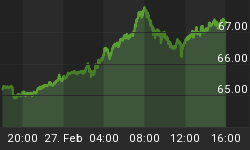Market Outlook
For the week ending April 5, 2013, the SPX was down 1.0%, the Russell small caps were down 3.0% and the COMP was down 1.9%.
This week the model triggered short Russell small caps, Mid Cap 400 and the Nasdaq Composite. Large caps remain in a confluence zone though have begun testing price levels to trigger short.
Amid the late week selloff in the JPY, additional upside in equity markets cannot be ruled out and caution is warranted with short directional trades. At the same time there are some very troublesome divergences which continue to signal a growing risk off environment.
The question of the ability to sustain current equity prices remains a valid concern based on both technicals and position data. Recent COT data is a complete inverse of August 2011 though more extreme as commercial is positioned for a trend reversal while non-commercial is essentially all in to the long side. This would also debunk the myth about cash on the sidelines and many waiting to go long. The data would support the contrary.
Asset Class Correlations
For the week ending April 5, 2013, the DXY was down 0.5%, 30 year yield was down 24bp and the USD/JPY was up 3.6%.
The most noticeable divergence of the past few weeks, more so this week is the flattening of the yield curve amid the rise in equity prices.
The multi-month divergence with equity and the EUR, copper and 30 year yield remains. As a result equity may show greater relative weakness as part of any future asset class convergence. Using any of these asset classes as a directional indicator may likely produce false signals. Our preference is to use JPY pairs.
This week saw a continuation of the divergence with 5 year Treasury break evens which were down 14bp on the week.




Sentiment
Though still low, the VIX did rise 9.6% this week. Implied volatility skew remains high though has come in over the prior week, averaging 120.82 for the week and closing at 118.34. There is currently a wide divergence and prior moves lower in the skew VIX spread have produced market weakness.
Skew is a measure of how implied volatility is distributed. The lower the reading the less skewed the curve, indicating a normalized distribution.

Funds Flow
For the period ending March 28, 2013, $0.9 billion flowed into domestic equity funds while $3.5 billion flowed into both municipal and taxable bonds.
For the month of March, domestic equity funds had a net inflow of $2.5 billion while bond funds had a net inflow of $17.5 billion. For 2012, domestic equity funds had a net outflow of $149.3 billion while bonds funds had a net inflow of $295.4 billion.

Bottom Line
The technical picture in equity markets is one of weakness though large caps have yet to trigger short. The recent move lower in JPY though likely not the start of a new downtrend needs to be considered and caution is warranted on any short directional trades. Additionally the growing risk off environment as indicated by the credit markets should not be ignored.
About The Big Picture: All technical levels and trends are based upon Rethink Market Advisor models, which are price and momentum based. They do not use trend lines nor other traditional momentum studies. To learn more about how the models work, please click here or visit http://rethink-markets.com/model-profile















